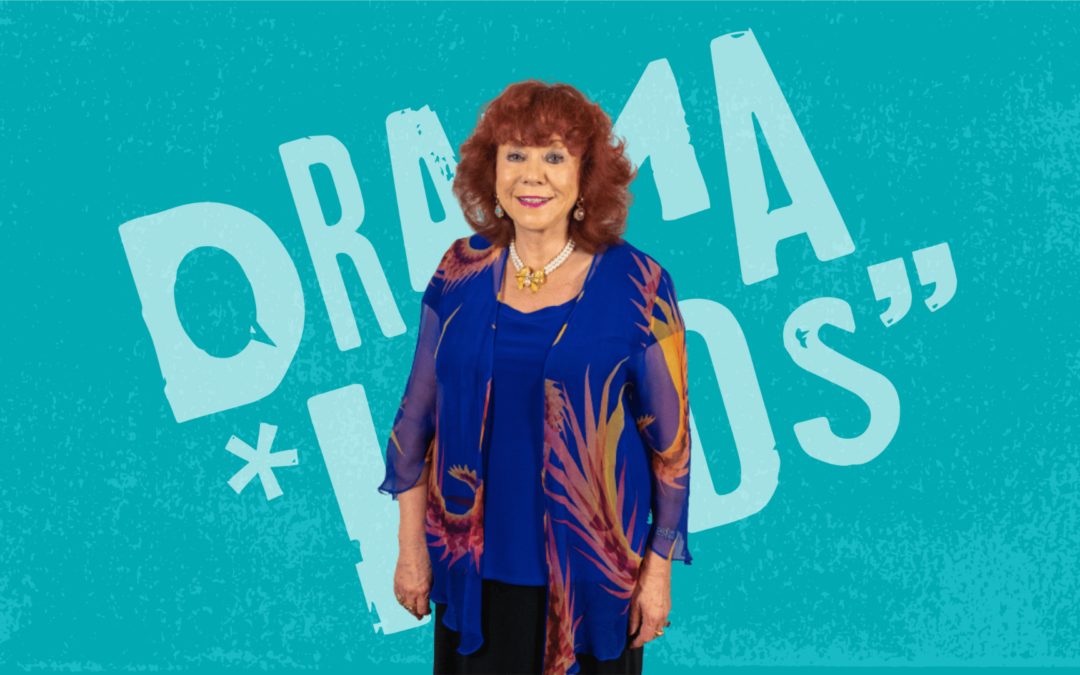A Franchise That Focuses On Children
When the regulations governing the children’s classification in television programming were relaxed in 1980, popular Perth children’s show compere Helen O’Grady found herself out of a regular acting job for the first time in nearly a decade. The New Zealand-born O’Grady had been the writer, producer and compere of two shows that were both axed by Channel Nine as a cost-cutting measure. Although she had worked as an actor with programs such as Division 4 and Matlock Police, O’Grady felt a special affinity for children’s television. She had previously been the producer and presenter of an SBS series, The Marvellous Munchkin Show, based on characters from The Wizard of Oz.
“It was quite a shock to find myself suddenly out of work,” O’Grady says. “I had started with children’s television in New Zealand in the late 1960s and I had been in charge of children’s television programming at Channel Nine in Perth. I saw it as my career.”
O’Grady thought she would have to go back to Melbourne or Sydney to resume her acting career, but instead friends and colleagues urged her to set up a drama education group, using theatrical techniques to improve children’s confidence and expression. Suitably encouraged, she established the Helen O’Grady Multi Media Workshops, later altered to the Helen O’Grady Children’s Drama Academy. The name is a slight misnomer, as it suggests that the academy’s purpose is to teach children how to act. In fact, O’Grady says, it has a highly structured creative educational program designed to make children more outgoing and to enable them to realise their potential and talents. In Perth, nearly 1000 children are enrolled in the drama academy classes, which are conducted at 24 church, community and school halls by qualified teachers.
“There are different types of classes for pre-school children, lower primary and older children,” O’Grady says. “We have teenagers doing the program up to the age of 18. The pre-school classes focus on music, movement and drama, language skills and coordination. The classes for older children cover language, development and confidence-building through creative drama.”
O’Grady says the classes are not designed for budding actors. “I have seen plenty of showbiz mums over the years dragging along little Johnny to rehearsals,” she says. “I’m not interested in that scene. Our goal is to help children to learn to become self confident and to teach them how to express themselves through music and drama. Each child who attends a class gets a degree of personal attention. That is what they need to encourage them to come out of themselves. The aim of the program is not to produce ‘stars’, but to help them achieve their own potential.”
A Family Endeavour
O’Grady credits her husband, Steve Griffiths, as being the driving force behind the expansion of the academy from its single location into a flourishing educational business with dozens of outlets in Perth and Melbourne.
Griffiths had been a captain in the Australian Army before leaving to pursue a career in real estate. He was the Western Australian director of the franchised real estate group L.J. Hooker and then a national director. Convinced of the potential of the drama academy, Griffiths resigned from Hooker to become a director and to oversee its expansion into franchising.
Franchising a Drama Academy
Earlier this year (1989), the drama academy appointed its first franchisees in Melbourne. There are now five franchised areas with more than 1000 students. Last week, O’Grady and Griffiths interviewed potential franchisees in Sydney. O’Grady and Griffiths believe 35-40 franchised territories could be established in the capital cities, with several more set up later in provincial centres. “Our immediate goal is to have 5000 students enrolled in drama academy classes within the next two years,” O’Grady says.
Academy franchisees are qualified teachers who run the classes according to the detailed operations manual prepared by O’Grady and Griffiths. “We spent 18 months writing the manual to explain, in detail, how to operate the drama academy,” O’Grady says. “We put a lot of blood, sweat and tears into writing that manual so that franchisees would have a clear understanding of the business.”
The academy’s franchise expansion is being guided by the Melbourne-based franchise consultants. Franchise Developments. A consultant, Antony Van der Velde, describes the drama academy as being “one of the best-structured franchise systems that I have come across in Australia. An enormous amount of work has gone into developing the concept of the drama academy and the franchise program”.
Franchisees rent community and church halls to conduct the hour-long classes, which are held after school. It costs $65 a term to attend the classes, which have up to 20 students. O’Grady says franchisees need to conduct the classes personally for the first year or so, but could employ teachers as the business expands. “Each franchise would be capable of being built up to a level of 500-600 students,” she says. “The franchisees would be devoting an increasing amount of their time to administering the business, rather than directly teaching.”
O’Grady says that, so far, all of the franchisees are women, but she expects to appoint some men soon. She describes the drama academy as an ideal business for a husband and wife.
“It can be operated from home,” she says. “You only need an answering machine and a telephone, so the overheads are very low. Once the franchise is operating at full strength, franchisees have the ability to earn in excess of$60,000 for working 30 hours a week based on the school year.”
A franchise costs $35,000 plus a royalty of 10% of gross revenue. The payment entitles the franchisee to an exclusive territory and to the programs and training developed by the academy. O’Grady says franchisees undergo an initial training period and there is constant contact between the franchisees and head office. A complete curriculum of programs is provided for the franchisees, who need to be “a bit entrepreneurial and extroverted in their approach”. The franchise territories are based on income and demographic patterns using census statistics.
The Drama Students
O’Grady says most students come from middle-class families.
“The students are a bit of a mixed bag,” she says. “We have some who are obviously lacking in confidence and underperforming at school and who need a real boost in self-esteem to help them improve academically and socially. We have seen some quite extraordinary changes in the personalities of students doing the course. But equally, we have many students whose parents are looking for a way of encouraging their creativity and self expression. I think, in the future, that the young people who will get the better jobs will be those who have confidence and skill in communication.”

